A Literary Theory chapter addresses a topic of critical, theoretical, or methodological importance to the study of Canadian literature.
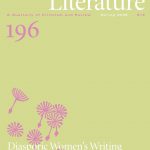
| An Introduction to Gender and Sexuality | |
| Title |
|---|
Written by CanLit Guides' Editorial Team
This guide draws attention to the centrality of gender and sexuality in the discussion of Canadian literature and culture, and to the kinds of criticism done within the journalCanadian Literature. Understanding how gender and sexuality are constructed is a central scholarly concern in understanding Canada’s national and literary imagination. To see this, we can begin by considering early propaganda images that constructed Canada’s West as an idealized and harmonious community awaiting settlers.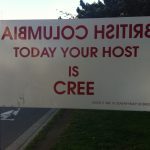
| An Introduction to Indigenous Literatures in Canada | |
| Title |
|---|
Written by CanLit Guides' Editorial Team
In Canadian Literature’s groundbreaking 1990 special issue, Native Writers & Canadian Writing, W. H. New argues in his editorial that “Power declares; it doesn’t readily listen” (4). At the time,Canadian Literature still represented the power of the Canadian literary establishment, but for this issue the journal attempted to critically listen and engage with Indigenous writers, rather than speak over them. By implication, this shift also means the journal asked its readership to become willing listeners about Indigenous literature, in all its contradictions and complications.
| An Introduction to Producing and Evaluating Canadian Texts | |
| Title |
|---|
Written by CanLit Guides' Editorial Team
Studies of literary prizes (Roberts), the economics of literature (English), and the hidden labour of reading for pleasure (Shukin) are expanding the fields of literary studies. These scholars are among many academics that are rethinking the study of literature in a media-driven age.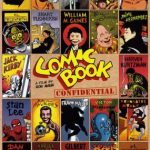
| English-Language Comics and Graphic Novels in Canada | |
| Title |
|---|
Written by CanLit Guides' Editorial Team
Comics include a range of forms and genres, including the popular graphic novel, and go by a variety of names like cartoons, comix, the funnies, graphica, graphic literature, sequential art, and visual literature. Comics has remained the most popularly accepted general term, with the recognition that comics aren’t always funny.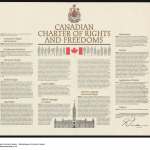
| Nationalism, Now: Ongoing National Conversations | |
| Title |
|---|
Written by CanLit Guides' Editorial Team
Contemporary debates about Canadian nationalism in Canadian literature reflect ongoing concerns with power, history, cultural diversity and with their effects on individuals, communities, and the nation state.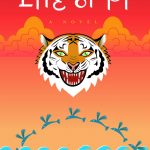
| Paratexts and Literary Value | |
| Title |
|---|
Written by CanLit Guides' Editorial Team
The Author’s Note is part of the paratext of Yann Martel’s Life of Pi that helps the text establish its cultural value. The Author’s Note is written in first person, and the title of the piece—“Author’s Note”—implies the speaker is Yann Martel, the author whose name is on the cover of the physical book. The speaker even gives a history of how he came to write “[t]his book” (v) by explaining his previous literary failures, some of which evoke Martel’s own earlier underwhelming literary efforts. Yet as the preface unfolds, the speaker says he met with “Mr. Patel,” the “main character” (x) of the novel Life of Pi. Suddenly, the truth of the Author’s Note is thrown into question—is the preface fact or fiction?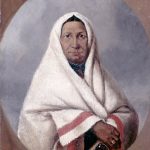
| Poetry and Racialization | |
| Title |
|---|
Written by CanLit Guides' Editorial Team
This chapter stages an imaginary conversation between Duncan Campbell Scott (born 1862), the Canadian Deputy Superintendent of Indian Affairs from 1913 to 1932, and E. Pauline Johnson (Tekahionwake; born 1861), the daughter of a Mohawk Chief and an Englishwoman. Scott and Johnson were distinctively different poets who addressed Indigenous issues from very different racialized and gendered perspectives.
| Post-nationalism? Regional, National, and Global Connections | |
| Title |
|---|
Written by CanLit Guides' Editorial Team
Discussing nationalism in terms of globalization troubles and broadens simplistic notions of place. A global perspective focuses on groups with shared interests that form affinity networks beyond national borders, such as global Indigenous movements and international associations that address educational and economic inequalities, human rights violations, and so forth.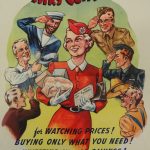
| Postfeminism and Conservative Feminism | |
| Title |
|---|
Written by CanLit Guides' Editorial Team
Postfeminism and conservative feminism share an intellectual foundation but are different movements. Postfeminism is a critique of second- and third-wave feminism, while conservative feminism rejects the liberalism of second- and third-wave feminism. Conservative feminists argue that the age of high feminist activism ended in the 1970s, and that the feminist movement obtained its primary goals.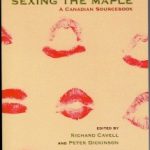
| Queer Theory and Canada | |
| Title |
|---|
Written by CanLit Guides' Editorial Team
On its face, queerness may not seem to have much to do with Canada, or Canadian literature. In an editorial for a special issue of Canadian Literature, gender studies scholar Janice Stewart discusses the Queerly Canadian conference that was held at the University of British Columbia in June of 2009. She notes that the conference “foregrounded an interdisciplinary body of scholarship that critically rethinks modernist discourses located at the nexus of Canadian nationalism and critical considerations of sexualities and genders in their multiple configurations.”
| What is Canadian Literature? | |
| Title |
|---|
Written by CanLit Guides' Editorial Team
It may seem strange to open a guide to Canadian literature by describing it as a shifting wilderness and a bewildering whirlwind. However, M. G. Vassanji’s comment serves as a warning to stay away from rigid, categorical thinking. There is no central idea, no easy essence, that binds Canadian literatures together.








 ©
©